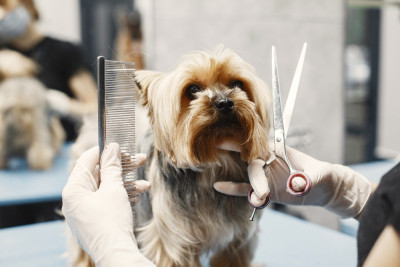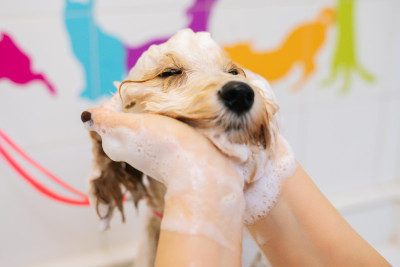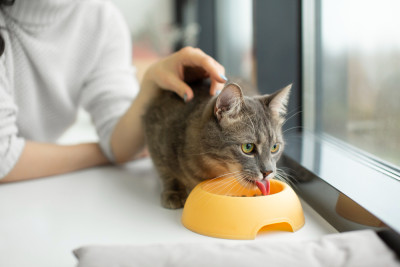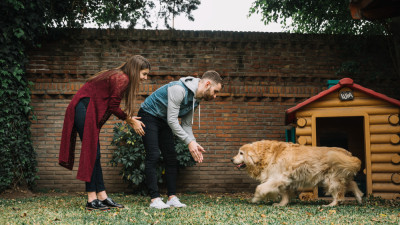1. Regular Grooming
Grooming plays a vital role in your dog's appearance and comfort:
-
Brushing: Regular brushing not only keeps your dog's coat clean and free of tangles but also strengthens the bond between you and your pet. Different coat types require varying levels of grooming; consult with your veterinarian or a professional groomer for guidance.
-
Bathing: Bathing your dog as needed helps remove dirt and odors. Use a dog-specific shampoo to avoid skin irritation, and be sure to thoroughly rinse your dog's coat.
-
Nail Trimming: Overgrown nails can lead to discomfort and even affect your dog's gait. Regular nail trimming keeps your dog's paws healthy and minimizes the risk of injury.
-
Ear Cleaning: Check your dog's ears regularly for signs of dirt, wax buildup, or infection. Clean their ears gently with a veterinarian-recommended ear cleaner if necessary.
-
Dental Care: Brushing your dog's teeth or providing dental chews and toys can help maintain good oral hygiene and prevent dental issues.
2. Balanced Nutrition
Proper nutrition is the foundation of your dog's overall health:
-
High-Quality Dog Food: Choose a high-quality dog food that meets your dog's specific life stage and dietary requirements. Consult with your veterinarian for dietary recommendations.
-
Portion Control: Overfeeding can lead to obesity and health problems. Follow the feeding guidelines on the dog food packaging and adjust portion sizes based on your dog's activity level and age.
-
Fresh Water: Always provide your dog with access to clean, fresh water. Hydration is crucial for their well-being.
3. Regular Exercise
Physical activity is essential for your dog's physical and mental health:
-
Daily Walks: Take your dog for daily walks to provide exercise and mental stimulation. The length and intensity of the walk will depend on your dog's breed and age.
-
Playtime: Engage in interactive play with toys like balls, frisbees, and tug-of-war ropes. Interactive play strengthens the bond between you and your dog.
-
Off-Leash Time: If possible, allow your dog off-leash time in a secure, fenced area where they can run and play freely.
4. Preventive Healthcare
Regular veterinary check-ups and preventive care are vital for your dog's health:
-
Vaccinations: Keep your dog's vaccinations up-to-date as recommended by your veterinarian to protect against common diseases.
-
Parasite Control: Use veterinarian-recommended flea, tick, and heartworm prevention to protect your dog from parasites.
-
Spaying or Neutering: Discuss spaying or neutering with your veterinarian as part of responsible pet ownership and population control.
5. Mental Stimulation
Mental stimulation is as important as physical exercise:
-
Training: Engage your dog in basic obedience training and teach them new tricks to keep their mind active.
-
Puzzle Toys: Provide puzzle toys and games that challenge your dog's problem-solving skills.
-
Social Interaction: Regularly expose your dog to new people, animals, and environments to prevent boredom and anxiety.
6. Regular Grooming and Veterinary Check-Ups
Schedule regular grooming appointments and veterinary check-ups to catch and address any health or grooming issues early.
7. Love and Attention
Show your dog love and attention through cuddles, play, and quality time together. Dogs thrive on companionship and affection.
Conclusion
Keeping your dog looking and feeling its best is a combination of grooming, nutrition, exercise, healthcare, and love. By providing proper care and attention, you can ensure that your furry friend enjoys a happy and healthy life. Remember that every dog is unique, so tailor your care routine to your dog's specific needs and consult with your veterinarian for personalized guidance.







